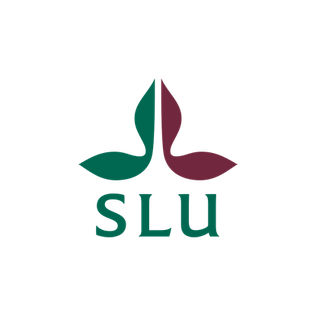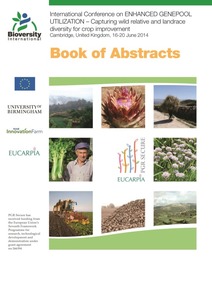Location
SE-750 07
Uppsala SWEDEN
SLU is a university that is broad based both geographically and scientifically.
Science and education for sustainable life
SLU develops the knowledge about how to use natural, biological land and water resources in a sustainable manner.
Education, research and environmental monitoring and assessment are pursued at some thirty locations all over the country. The main campuses are Alnarp, Umeå and Uppsala.
Members:
Resources
Displaying 6 - 10 of 12Balancing agri-food systems for optimal global nutrition transition
Brucella seroprevalence in cattle near a wildlife reserve in Kenya
Objectives
International Conference Enhanced Genepool Utilization - Capturing wild relative and landrace diversity for crop improvement, Cambridge, United Kingdom, 16-20 June 2014. Book of Abstracts
This conference presents the culmination of the PGR Secure project (www.pgrsecure.org) – a collaborative project involving eleven partners funded under the EU Seventh Framework Programme, THEME KBBE.2010.1.1-03, 'Characterization of biodiversity resources for wild crop relatives to improve crops by breeding', Grant agreement no. 266394. It is jointly organized with the section on genetic resources of the European Association for Research on Plant Breeding (EUCARPIA).
An integrated agro-ecosystem and livelihood systems approach for the poor and vulnerable in dry areas
More than 400 million people in the developing world depend on dryland agriculture for their livelihoods. Dryland agriculture involves a complex combination of productive components: staple crops, vegetables, livestock, trees and fish interacting principally with rangeland, cultivated areas and watercourses. Managing risk and enhancing productivity through diversification and sustainable intensification is critical to securing and improving rural livelihoods.
Breeding practices of Red Maasai sheep in Maasai pastoralist communities
A survey was undertaken to understand sheep management, breeding practices and selection criteria for Red Maasai sheep in Maasai pastoralist communities in Kajiado District, Kenya. Differences between North and South Kajiado District were investigated to gain knowledge about farmers having different prerequisites and how it can affect the sheep production. The reason for keeping sheep and the specific breeds show the multiple objectives of the Maasai farmers.




